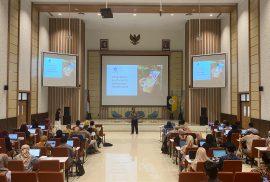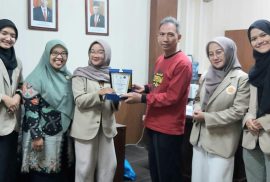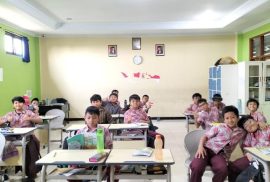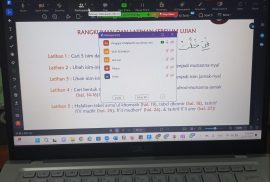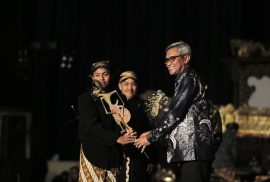SDGS 8: Decent Work and Economic Growth | SDGs 17: Partnership for the Goals
On Tuesday, February 13th, 2024, Universitas Gadjah Mada through the UGM Public Relations, News, and Protocol Office held a Technical Guidance with the theme “Management of Universitas Gadjah Mada Social Media” for public relations, protocol, and news staff in the UGM work unit environment which was held in the Auditorium of the Faculty of Mathematics and Natural Sciences, from 09.00 – 12.00 WIB. To strengthen the university’s public relations function, UGM presented several speakers from the UGM Public Relations, News, and Protocol Office to present the material themes. This aligns with providing information services to the public about events, events, and information around UGM.
The Technical Guidance session began with a speech from the Deputy Dean for Alumni, Cooperation, and Innovation, Dr. Fajar Adi Kusumo, S.Si., M.Sc., who stated that the publication of activities carried out in the UGM environment could be a source of inspiration for the wider community, therefore it is necessary to have qualified knowledge to manage information for the public, especially information that is shared through social media. In line with this, Mrs. Hestining Kurniastutim, S.S., M.B.A., Head of the UGM Public Relations, News, and Protocol Office, also stated the high urgency of social media, as well as the traffic of the existence of the official pages of each unit which affects the ups and downs of information accessibility caused by the increasingly rapid communication.
The Technical Guidance session was then continued with a presentation of material that mapped the segmentation of social media users from each social media platform, the objectives of building social media content, efforts to increase engagement from social media content, the characteristics of content for public information, and the stages of production of content for social media. The presentation of the material ended with the opening of a question and answer session from the faculty, department, and other UGM work units regarding the management of social media on several platforms, copywriting, content feedback management, engaging influencers or important UGM figures, and finding a balance in content creation.

